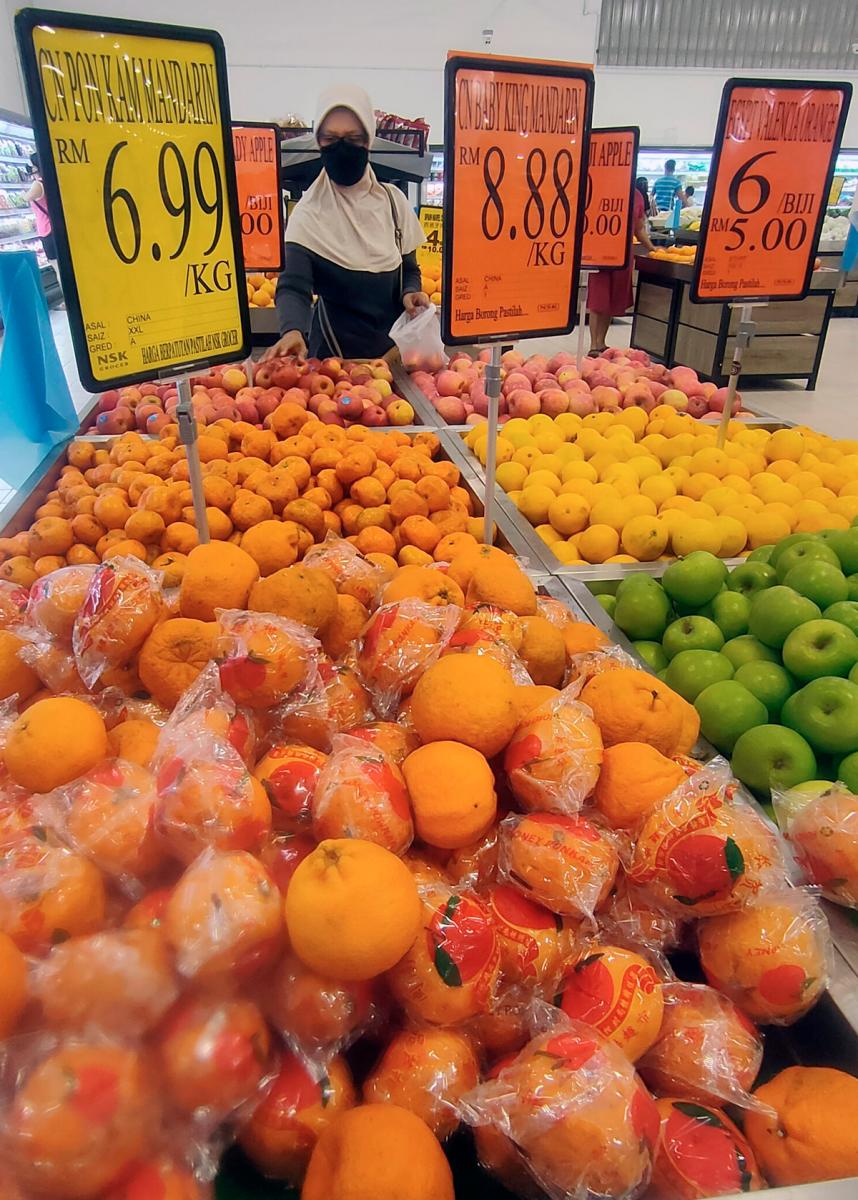PETALING JAYA: The government is being urged to release a clear, centralised list of taxable and exempted items under the expanded Sales and Service Tax (SST) to prevent confusion ahead of its implementation on July 1.
Economists warn that without authoritative guidance, businesses could face compliance issues and pricing disputes. They said a government-endorsed reference list is seen as critical to ensure clarity for companies, consumers and enforcement agencies.
A Finance Ministry spokesperson said the expanded SST will include a 5% sales tax on both locally manufactured and imported goods. However, locally grown fruits will be exempt, while imported fruits will be taxed.
“Selected imported food items such as rice, wheat, sugar, salt and meat remain exempt as they are considered basic essentials,” the ministry said, adding that both local and imported palm oil used for cooking will also continue to be exempted.
Still, confusion persists over what exactly is taxable. For example, cooking oil was initially believed to be taxed, but authorities later clarified that palm-based cooking oil, regardless of origin, remains exempt.
Universiti Teknologi Mara Academy of SME and Entrepreneurship Development coordinator Dr Mohamad Idham Md Razak said the lack of clarity could lead to unintended consequences.
He noted that while the move is a necessary revenue measure, broad tax hikes during economic uncertainty carry risks, and targeting luxury goods would be a more balanced approach.
“While lower-income groups may be shielded by continued exemptions on basic necessities, middle-income households could feel the pinch depending on their spending habits.
“Short-term inflation is a likely outcome if businesses choose to pass the additional tax burden on to consumers, particularly for goods and services that fall into the semi-essential category. But spending may not drop sharply if essentials remain unaffected.”
Mohamad Idham also stressed that the expanded SST would only be effective if luxury goods and services are clearly defined, and if enforcement is strong enough to prevent loopholes, such as luxury vehicles or high-end entertainment options escaping taxation.
He added that the government must closely monitor price hikes on semi-essential items, including mid-range electronics, and regularly review the exemption list to ensure it reflects current economic realities, particularly for middle-income households.
“In sectors such as private healthcare and education, where demand is relatively inelastic, service providers may transfer additional costs to consumers, potentially driving sector-specific inflation.
“To evaluate the policy’s fairness and impact, tracking key indicators such as the Consumer Price Index (CPI) for affected items, consumer sentiment, retail sales performance and compliance rates across industries is highly recommended.”
Meanwhile, the Federation of Malaysian Consumers Associations (Fomca) has urged the government to cushion the impact of the expanded SST by reassessing the tax list and reinstating exemptions for core necessities.
Its secretary-general Dr Saravanan Thambirajah also called for targeted subsidies or tax offsets for low-income households to help cope with rising food prices.
“The government must strengthen enforcement to curb price manipulation and profiteering, and improve transparency so consumers can differentiate between genuine tax-driven price hikes and profiteering.”
Saravanan said imposing taxes on essential goods sends a contradictory message – on one hand, the government pledges to protect vulnerable groups, but at the same time removes exemptions that have shielded them.









